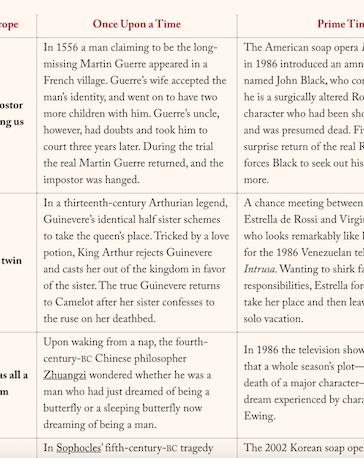Miscellany
After “a certain knight shamefully divulged the intimacies and the secrets” of his lover, André Le Chapelain wrote in his late twelfth-century The Art of Courtly Love, an ad hoc tribunal of noble Gascon women “decided unanimously that forever after he should be deprived of all hope of love, and that in every court of ladies or of knights he should be an object of contempt and abuse to all.”

